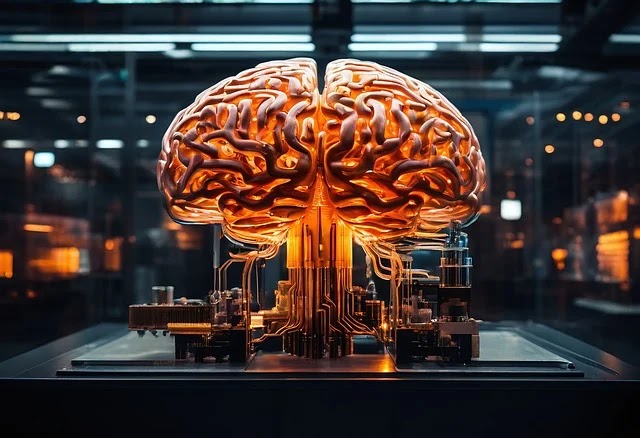Introduction:
The Evolution of Technology in the 21st Century
In the 21st century, technology has become the lifeblood of modern society, driving unprecedented changes across industries. Innovations have reshaped how businesses operate, how people communicate, and even how societies function on a global scale. The rise of the internet, the smartphone revolution, and cloud computing are just a few examples of how technological advancements have transformed the landscape.
These breakthroughs have facilitated faster, more efficient communication, enabling companies to expand their reach and deliver better services. The impact is evident in industries such as healthcare, education, and entertainment, where cutting-edge technologies are paving the way for smarter solutions, greater efficiency, and enhanced user experiences.
Breakthroughs in Artificial Intelligence
Artificial Intelligence (AI) has rapidly emerged as one of the most transformative technologies in recent years. From machine learning algorithms to neural networks, AI is making its mark across industries. It is driving innovations in areas such as healthcare, where AI-powered diagnostics are enabling early disease detection, and in finance, where AI is optimizing trading strategies.
AI is also being applied in autonomous systems, robotics, and natural language processing. While AI holds immense potential, it also raises ethical questions about privacy, bias, and the displacement of human jobs, challenges that will need to be addressed as the technology matures.
5G and Connectivity Advancements
The rollout of 5G networks marks a significant leap in global connectivity. Promising faster speeds, lower latency, and the ability to support more connected devices, 5G is set to revolutionize industries ranging from telecommunications to healthcare. For instance, 5G will enable real-time data transfer for medical applications such as remote surgeries and telemedicine.
The Internet of Things (IoT) will benefit greatly from 5G, allowing more devices to be connected seamlessly, enabling smart cities and enhancing autonomous vehicle networks. However, the global deployment of 5G faces challenges, such as the high cost of infrastructure and the geopolitical competition over its implementation.
Virtual and Augmented Reality Innovations
Virtual Reality (VR) and Augmented Reality (AR) technologies are no longer just for gaming; they are now being applied across multiple sectors, from healthcare and education to retail and real estate. VR is enabling immersive training experiences for medical professionals and soldiers, while AR is being used by architects and interior designers to visualize projects in real-world settings. These technologies are also transforming the customer experience in retail, allowing consumers to try products virtually before making a purchase. As VR and AR hardware become more affordable, their adoption is expected to increase, unlocking new creative possibilities in both professional and personal environments.
Quantum Computing: The Next Frontier
Quantum computing represents a paradigm shift in computational power. Unlike classical computers that use bits, quantum computers leverage quantum bits (qubits) to process complex calculations at speeds unimaginable with traditional systems. This breakthrough could revolutionize fields such as cryptography, materials science, and drug discovery by solving problems that are currently unsolvable. However, quantum computing is still in its infancy, with practical applications years away. Companies like IBM, Google, and Microsoft are investing heavily in quantum research, aiming to bring this technology to mainstream use within the next decade.
Edge Computing and IoT
Edge computing is playing a critical role in the expansion of the Internet of Things (IoT). As more devices become connected, the need for real-time processing of vast amounts of data has become essential. Edge computing allows data to be processed closer to the source, reducing latency and bandwidth usage.
This is particularly important for applications such as autonomous vehicles, where split-second decision-making is crucial. By enabling faster data processing and reducing the strain on central servers, edge computing is helping IoT realize its full potential, supporting smart cities, industrial automation, and advanced healthcare systems.
FAQs on Tech Trends and Creative Breakthroughs
- What are the latest trends in artificial intelligence?
- AI trends include advancements in natural language processing, machine learning, and AI ethics.
- How is 5G changing the tech landscape?
- 5G is improving connectivity, enabling faster data transfer and supporting IoT growth.
- What are the applications of VR and AR beyond gaming?
- VR and AR are being used in healthcare, education, retail, and real estate for immersive experiences.
- How does quantum computing differ from classical computing?
- Quantum computing uses qubits, allowing it to process complex problems faster than classical computers.
- What is edge computing, and why is it important for IoT?
- Edge computing processes data locally, reducing latency and bandwidth usage, which is critical for IoT.
- What role does technology play in sustainability?
- Green technology helps reduce carbon emissions and promotes renewable energy solutions.







0 Comments